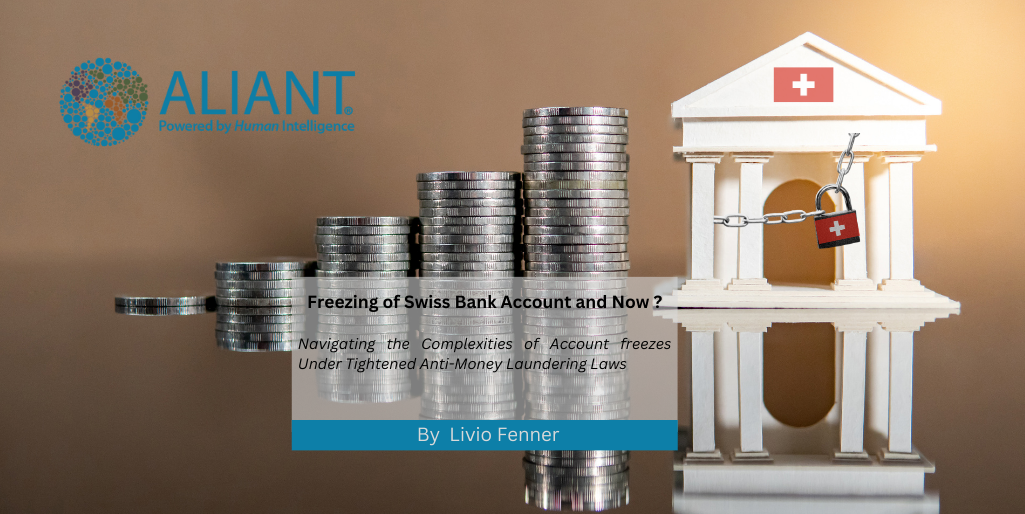Navigating the Complexities of Account freezes Under Tightened Anti-Money Laundering Laws
In recent times, heightened scrutiny of anti-money laundering legislation and internal bank compliance measures has led to an increased incidence of legal disputes between bank customers and their financial institutions, particularly concerning account freezes.
The Causes and Legal Grounds for Account Freezes
Account freezes often stem from ongoing investigations in the account holder’s country of residence. They can be triggered by suspected violations of anti-money laundering laws, potential civil claims, suspicion of illicit fund origins, or uncertainties regarding the possibility of the customer falling victim to fraudulent activities like phishing or extortion. In some cases, preventive freezes are imposed by banks, driven by the fear of potential legal repercussions.
In instances where government authorities are involved, such as in criminal proceedings, banks execute freezes based on instructions from the relevant authorities. Tax authorities or enforcement courts may also order asset freezes to safeguard financial assets. When freezes occur within a criminal investigation, the bank is typically prohibited, under threat of legal consequences, from informing the account holder about the reasons behind the account suspension. Additionally, freezes are often accompanied by disclosure orders, compelling banks to provide all account-related documents to the prosecuting authorities, sometimes involving the seizure of assets.
Understanding Customer Rights under Swiss Law
In Switzerland, the contractual relationship between bank customers and their banks is governed by the provisions of contract law (Art. 394 ff. Swiss Code of Obligations) and deposit contract law (Art. 472 ff. Swiss Code of Obligations). Besides legal regulations, contractual agreements such as General Terms and Conditions (GTC) play a significant role, as long as they do not violate mandatory legal provisions.
These regulations generally establish a fundamental obligation for banks to release customer funds, which cannot be waived through general terms and conditions. However, this obligation has its limits, especially when unlawful or unethical transactions are involved, such as violations of public laws like criminal statutes, including anti-money laundering regulations.
Bank’s Obligations and Reporting Requirements
Banks are obligated to report to the Money Laundering Reporting Office Switzerland (MROS) if they know or suspect that assets involved in current or future business relationships have an illicit background. However, in the absence of evidence for a relevant predicate offense, there is no reporting obligation or right on the part of the bank. The bank must forward the case to MROS only when the criteria for account suspension are met. The bank can maintain the freeze for a maximum of five working days after notifying MROS. If there is no extension order from law enforcement, the freeze becomes unjustified, and the bank may be liable for immediate asset release.
Challenging Account Freezes: What Can Be Done?
Given the potential financial and reputational damage resulting from a bank account freeze, immediate action is crucial. Contacting the bank’s Compliance Officer promptly and requesting all relevant data and information leading to the account freeze is essential. Swift action from the point of notification can make the difference between a brief suspension and a prolonged freeze.
In compliance with Swiss anti-money laundering laws, every transaction must be substantiated, reconstructed, and made traceable through appropriate documents. A neutral third party should be able to understand the transaction solely based on these documents. Once pertinent information is provided, detailing the flow of funds and the business scenario, a transparent and well-documented case may lead to the account being unfrozen and transactions being resumed.
Conclusion
Navigating the complexities of account freezes involves an understanding of legal frameworks, contractual agreements, and reporting obligations. Customers facing such situations should act swiftly and methodically to protect their rights and mitigate potential damages.






